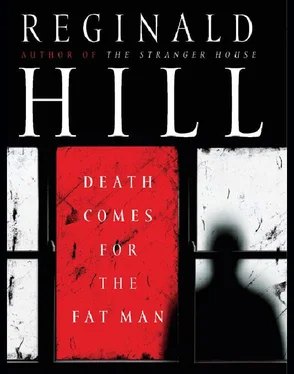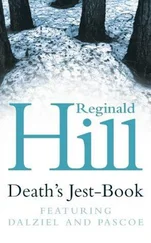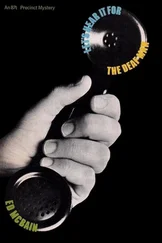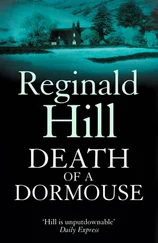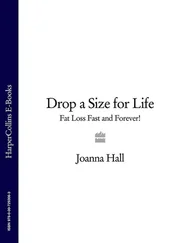But I have always been an addict of detective fiction, so perhaps I only saw what an overheated imagination inclined me to see, though the giving of her lost love’s name to the baby does seem indicative. Of course, when I read all these years later in the newspapers of the poor boy’s sad fate, such speculation seemed irrelevant, almost indecent. Poor Edith. That her pursuit of pleasure, and her father’s pursuit of respectability, should have brought them to this ambush! Indeed, as flies to wanton boys are we to the gods.
But I am very pleased to hear that the wanton gods have not put paid to your Andy. May his improvement continue. He sounds an interesting man. Perhaps I may meet him someday? By way of hint let me remind you that the Avalon complex is not simply a place where old tuskers like myself come to die. The old house is used for convalescence, and its inmates have been seen to leave on their own two feet.
Whatever you decide, do keep in touch, if only to remind me that our speculative astronomers are right and there definitely is life out there!
Yours affectionately, Kittie Bagnold
P.S. I almost forgot. You asked about the background of the gardener. He was a Pole who came here as a child in 1945 when his family decided that after five years under the Nazis they deserved more than a communist future. He grew up, married a Yorkshire girl, and they produced that remarkably dishy young boy (yes, even in the staff room we remarked on such things!) who caused all the trouble.
The father was called Jakub, which we turned to Jacob, the boy Lukasz, which we turned to Luke, and their family name was Komorowski.
Ellie sat quite still for several minutes. She thought of many things, of truth and deception, of justice and revenge, of human savagery and human rights, of principle and pragmatism, of conscience and consequence. She thought of parents and children and how you lived through them and sometimes suffered through them too. She thought of fathers and sons, of pride and hope, of hope shattered and pride deformed. She thought of fathers and daughters, of Peter and Rosie, of them both waving good-bye as they left with Tig, of Peter looking almost young and fit enough to be the girl’s elder brother rather than her father. She thought of him lounging by the river, watching Rosie and Tig competing madly to see which of them could return home the wettest and muddiest. She thought of the troubled weeks after the Mill Street explosion, and she thought of the placid days since their visit to see Dalziel and she thought of Peter’s joy at the prospect of the fat old sod’s eventual complete recovery.
The time might be out of joint but it was someone else’s turn to put it right.
Somehow the imagined world of her novel, in which her characters moved in a tangled mesh of conflicting loyalties and moral choices, was no longer a place she wanted to be just now.
She pressed Delete and went downstairs to do some ironing.
